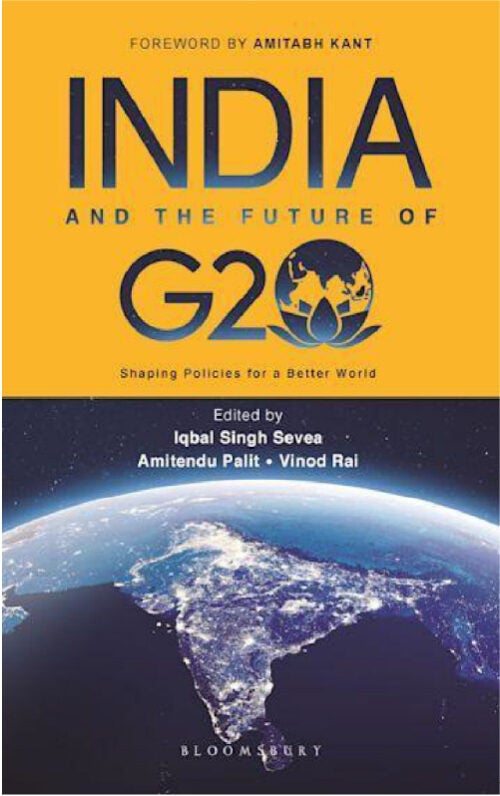
| Title: | India and the Future of G20: Shaping Policies for a Better World |
| Author/s: | Iqbal Singh Sevea, Amitendu Palit, Vinod Rai |
| Abstract: | As the G20, the world's largest economic and strategic grouping, addresses issues such as climate change that are of immediate concern, this book provides insights on India's presidency and its potential to deliver sustainable solutions in a fractured world order. Visionary contributions from G20 member Sherpas, including Argentina, Indonesia, Mexico, Singapore and the UAE, provide depth to the discourse.
The book showcases a diverse array of perspectives from distinguished scholars and policy practitioners. The contributors focus on key themes such as the digital economy, resilient supply chains, environmental standards, climate finance, gender empowerment, the future of multilateralism and the role of the Global South, offering a comprehensive examination of the G20's impact on the world stage. |
| Date: | 18 December 2023 |
| More From: |
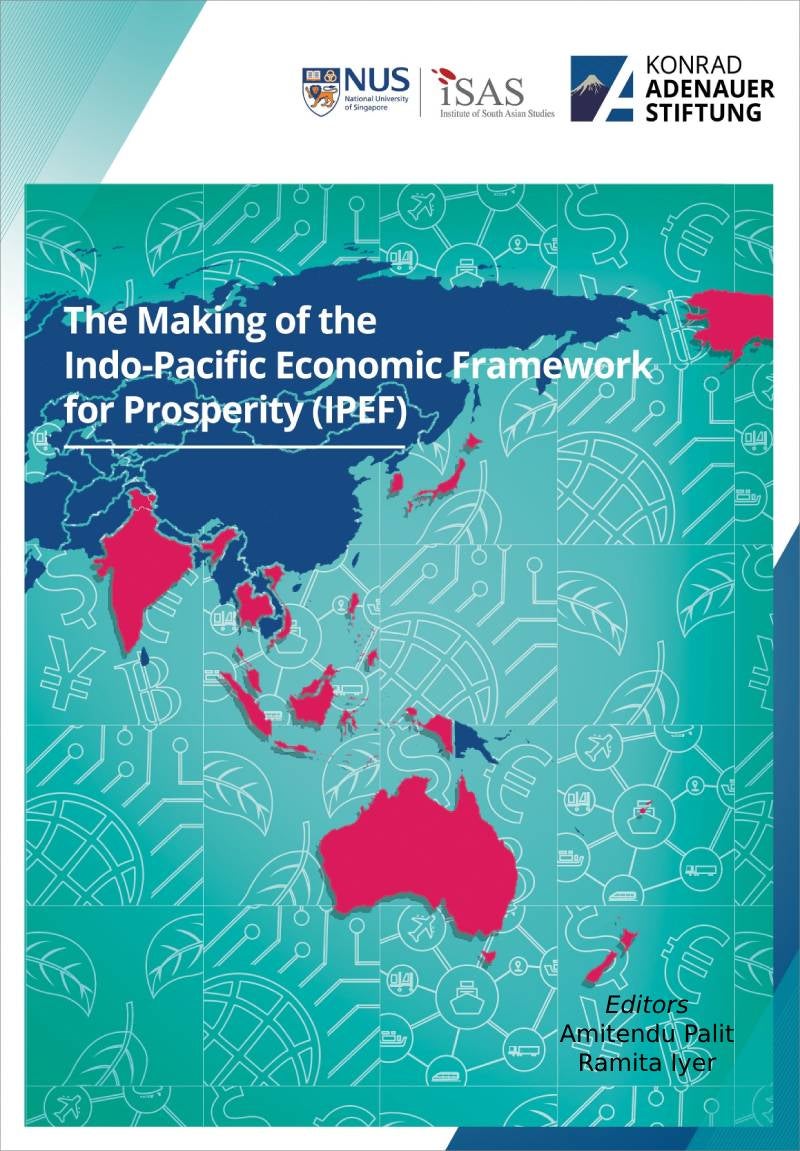
| Title: | The Making of the Indo-Pacific Economic Framework for Prosperity (IPEF) |
| Author/s: | Amitendu Palit, Ramita Iyer |
| Abstract: | The Making of the Indo-Pacific Economic Framework for Prosperity (IPEF) is a series of discussion papers jointly produced by the Institute of South Asian Studies (ISAS) at the National University of Singapore (NUS) and the Konrad Adenauer Stiftung’s Regional Economic Programme Asia (SOPAS). Demographic trends, technological advancements, progress towards regional integration and the region’s rise as an economic powerhouse are discussed against a backdrop of rising geopolitical tensions. Emphasis is placed on the value of multilateralism and the role of international cooperation and diplomacy in maintaining stability and sustaining economic gains.
The IPEF Discussion Papers represent the diverse perspectives and viewpoints offered by scholars in each of the IPEF member countries. The collection includes contributions from various disciplines such as economics, political science, international relations, and others. This interdisciplinary approach enriches our understanding of the depth and breadth of the emerging IPEF. Download PDF |
| Date: | 24 November 2023 |
| More From: |
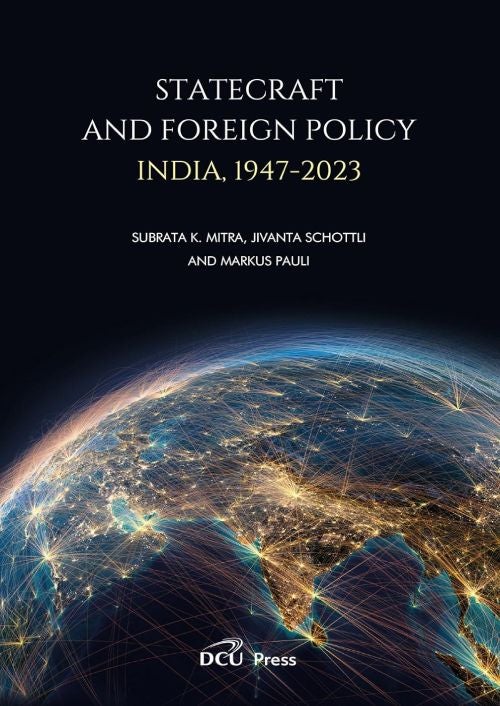
| Title: | Statecraft and Foreign Policy: India 1947 – 2023 |
| Author/s: | Subrata K. Mitra, Jivanta Schottli, Markus Pauli |
| Abstract: | Statecraft and Foreign Policy provides an in-depth understanding of India’s rise as an economic and political power and its role in addressing global challenges, from climate change to international trade, security, health and energy. It focuses on India’s statecraft and foreign policy from its independence in 1947 to current politics and policies in 2023 – 75 years later.
The book has three main sections, focusing on the evolution of India’s foreign policy after Independence, its transformation after the Cold War and as India’s economic and political power grew, and India’s engagement with major powers (like the US, China, and Russia) neighboring countries, and international institutions. The analysis draws on International Relations Theory, Foreign Policy Analysis, and the work of classic Indian thinkers like Kautilya. It combines evaluating domestic and international influences on India’s statecraft and foreign policy. The authors introduce a ‘toolbox’ for studying the making and the outcomes of Foreign Policy based on an analysis of interests, perceptions, and values. This analytical framework goes beyond the Indian case study and can be applied to International Relations, Comparative Politics, and Foreign Policy Analysis. |
| Date: | 15 November 2023 |
| More From: |
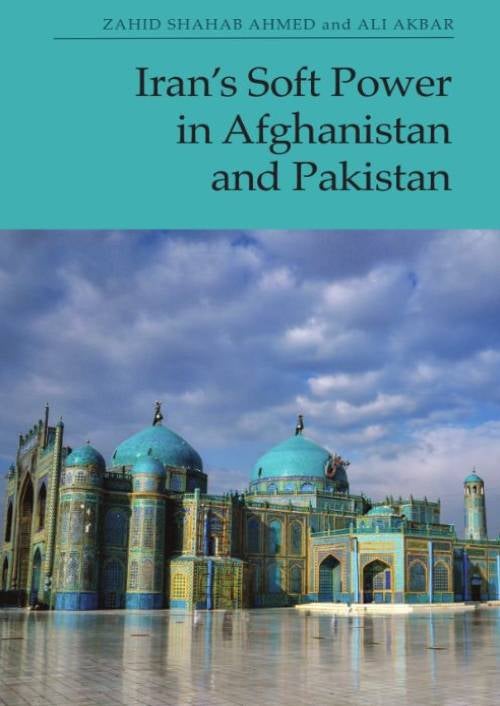
| Title: | Iran’s Soft Power in Afghanistan and Pakistan |
| Author/s: | Zahid Shahab Ahmed, Ali Akbar |
| Abstract: | This book explores Iran’s soft power in two of its eastern neighbors – namely Afghanistan and Pakistan – in key areas including the cultural, religious, social, media, ideological, and educational spheres. It explains what resources and instruments Iran has used to project its soft power in the two selected countries since the establishment of the Islamic Republic of Iran in 1979, and how Iran’s attempt to increase its reach has been perceived by elites and opinion makers in Afghanistan and Pakistan. It therefore offers the most up-to-date examination of Iranian soft power tools and strategies and how they are received in both countries – topics which have not hitherto been fully explored. The book reflects the ideas of local Afghan and Pakistani participants from civil society, government, military, media, academia, think tanks, and policymaking, explaining the extent to which research participants perceived Iranian soft power positively or negatively. |
| Date: | 31 August 2023 |
| More From: |
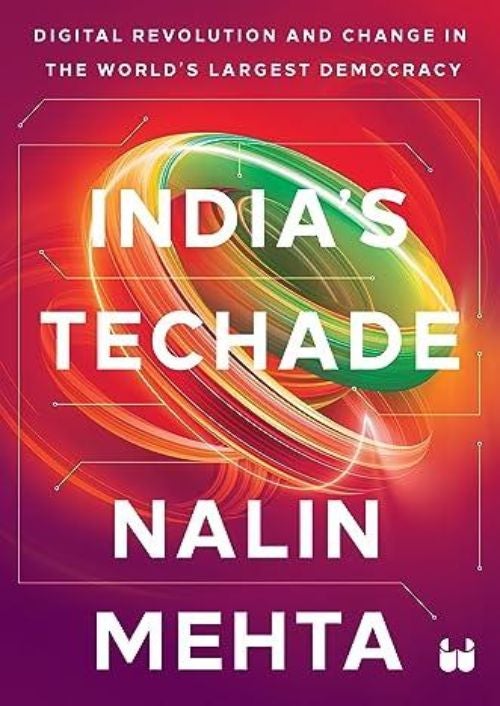
| Title: | India’s Techade: Digital Revolution and Change in the World’s Largest Democracy |
| Author/s: | Nalin Mehta |
| Abstract: | Over two decades, and across two different political regimes, the world’s largest democracy combined the rise of cheap mobile phones, cheap data and a unique digital ID system to create an unprecedented revolution in digital public goods. This included the rise of path-breaking fintech systems like Unified Payments Interface (UPI), the creation of a new kind of welfare state based on digital direct benefit transfers and interlinked e-governance systems that brought almost half a billion people who never had bank accounts into the financial system.
India’s Techade pieces together the story of how this digital revolution came to be. It is a crisp, yet comprehensive account of the systems, the innovators, the processes and the political will that drove the digital enterprise across India. |
| Date: | 24 August 2023 |
| More From: |
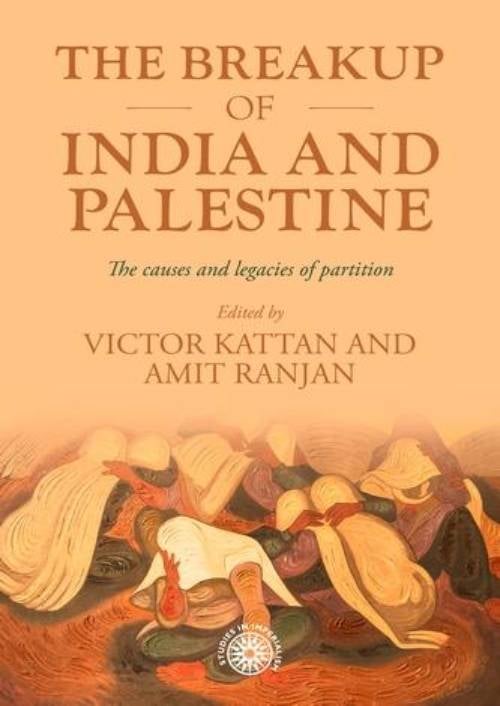
| Title: | The Breakup of India and Palestine: The Causes and Legacies of Partition |
| Author/s: | Amit Ranjan, Victor Kattan |
| Abstract: | This book is the first study of political and legal thinking about the partitions of India and Palestine in 1947. The chapters in the volume, authored by leading scholars of partition, draw attention to the pathways of peoples, geographic spaces, colonial policies, laws, and institutions that connect them from the vantage point of those most engaged by the process: political actors, party activists, jurists, diplomats, philosophers, and international representatives from the Middle East, South Asia, and beyond. Additionally, the volume investigates some of the underlying causes of partition in both places such as the hardening of religious fault lines, majoritarian politics, and the failure to construct viable forms of government in deeply divided societies. |
| Date: | 15 August 2023 |
| More From: |
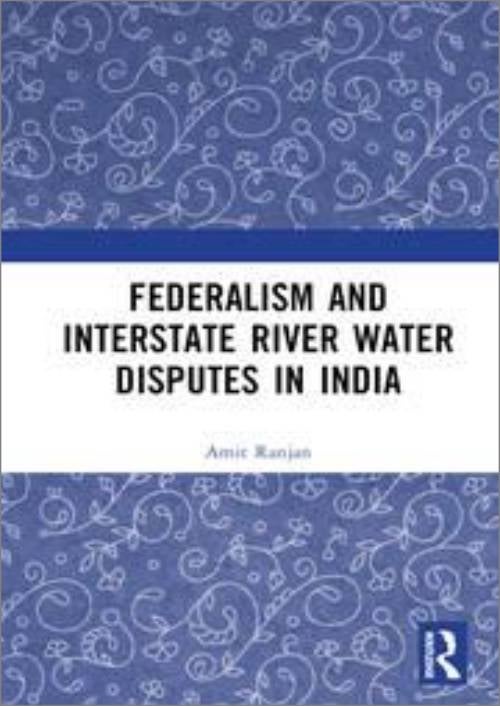
| Title: | Federalism and Inter-State River Water Disputes in India |
| Author/s: | Amit Ranjan |
| Abstract: | This book examines the Union-State and inter-State relations concerning water issues in India. It analyses the federal structure in India and looks at its effectiveness in addressing the inter-state river water disputes in the country through three cases: the Cauvery, Krishna and Mahadayi Rivers water dispute. It probes into the physical, political, legal and constitutional measures taken by the Union government and the states to deal with the inter-State and Union-State tussles over inter-State river waters. The author studies the debate over centralisation and decentralisation of water resources, as well as the inter-state river water disputes that have aroused feelings of sub-nationalism in many regions of India. Finally, this book also examines socio-political tensions over multipurpose water projects and other supply-side infrastructures, and their efficacy in addressing India’s increasing water problems. |
| Date: | 5 July 2023 |
| More From: |
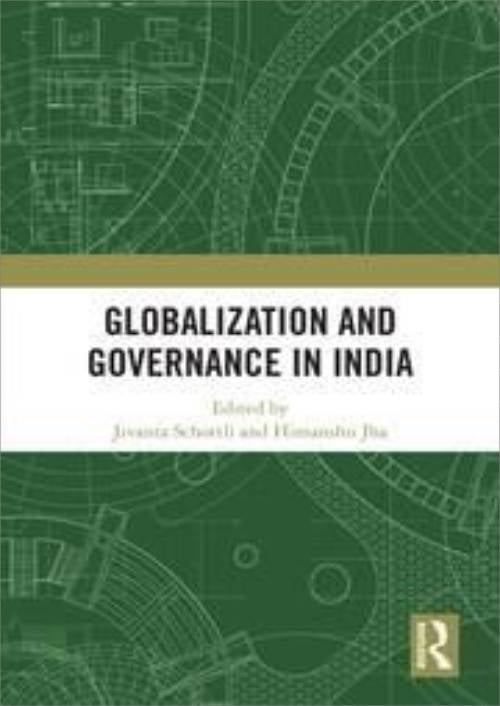
| Title: | Globalisation and Governance in India |
| Author/s: | Jivanta Schottli, Himanshu Jha |
| Abstract: | This volume examines the tangled relationship between globalization and governance through the lens of India’s domestic politics, structures, institutions and policies. The contributors to this volume draw attention to the interconnectedness of global and domestic processes. In doing so, this volume also captures the evolving dynamics of state-society-market relations. A unique blend of papers, the collection brings out the complex interplay and interconnections between global trends, domestic politics and governance challenges in explaining both persistence of policy reforms, as well as institutional change. In this light, the volume examines the role of socio-political processes and key actors at the domestic level; how they have negotiated global norms, pressures and opportunities resulting in durable policies and institutions.
The COVID-19 pandemic has yet again brought the focus back on the significance and interconnectedness of globalization and governance. This volume will contribute to a deeper understanding of these twin processes through thematic discussions on embedded liberalism of the Indian state; transnationalisation of India’s economic elites; exploring the role of global-local linkages in the transparency laws; strategic internationalization and the politics of reform; the global success of micro-credit and its domestic manifestation; and the resilience and durability of the ‘Indian model’ of governing globalization. This book was originally published as a special issue of the India Review. |
| Date: | 27 June 2023 |
| More From: |
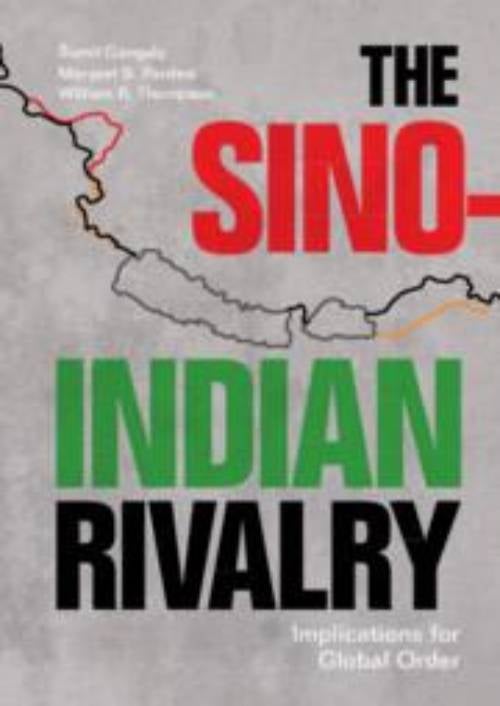
| Title: | The Sino-Indian Rivalry: Implications for Global Order |
| Author/s: | Manjeet S Pardesi |
| Abstract: | Drawing on a wide body of literature on international rivalries, this comprehensive and theoretically grounded work explains the origins and evolution of the Sino-Indian rivalry. Contrary to popular belief, the authors argue that the Sino-Indian rivalry started almost immediately after the emergence of the two countries in the global arena. They demonstrate how the rivalry has systemic implications for both Asia and the global order, intertwining the positional and spatial dimensions that lie at the heart of the Sino-Indian relationship. Showing how this rivalry has evolved from the late 1940s to the present day, the essays in this collection underscore its significance for global politics and highlight how the asymmetries between India and China have the potential to escalate conflict in the future. |
| Date: | 26 June 2023 |
| More From: |
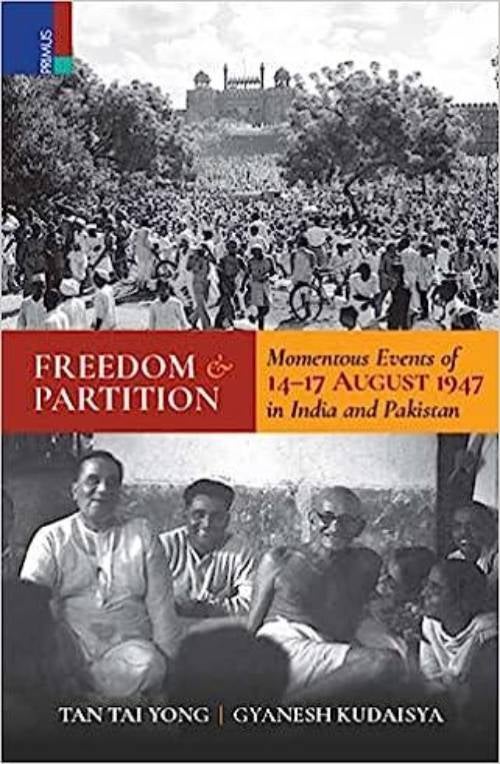
| Title: | Freedom and Partition |
| Author/s: | Tan Tai Yong, Gyanesh Kudaisya |
| Abstract: | Freedom and Partition offers a reconstruction of four momentous days that shaped the lives of millions of people in the Indian subcontinent: 14 - 17 August 1947. Based on primary archival material, newspaper reports, oral histories, and private papers of leaders, it looks at how the outgoing British officials worked with the leaders of the Congress and the Muslim League to plan the ceremonies that would mark the birth of India and Pakistan. In doing so, this book offers a ringside view of events in New Delhi and Karachi Moving away from official ceremonies, Freedom and Partition uses a 'slice of life' approach to see how ordinary people in cities and towns looked at the approaching moment, capturing the sense of trepidation and insecurity in Bengal, Punjab, Sindh and across much of north India.
This volume provides vignettes of Gandhi's peace mission for the safety and security of the minorities in Calcutta and recounts how the euphoria of freedom came to be overshadowed by the Radcliffe Award of 17 August 1947. Finally, it examines how popular meanings and memories of 14 -15 August 1947 have changed over the decades, as shown by shifts in narratives that have marked the 25th, 50th, and 75th anniversaries of Independence and Partition. |
| Date: | 17 June 2023 |
| More From: |
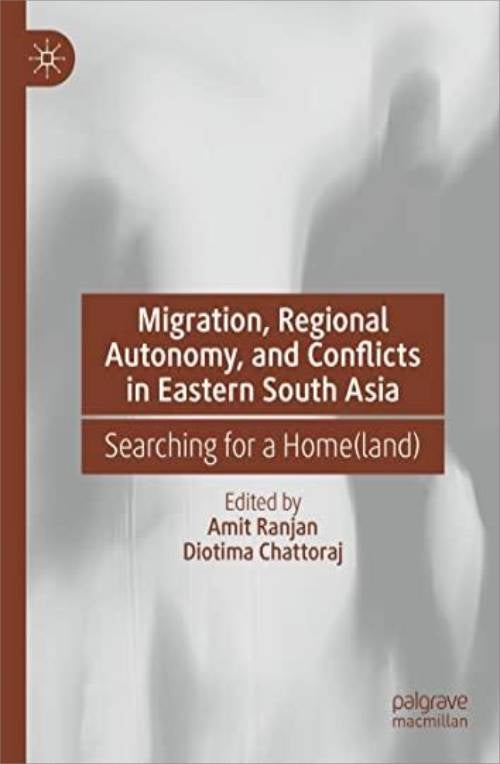
| Title: | Migration, Regional Autonomy, and Conflicts in Eastern South Asia: Searching for a Home |
| Author/s: | Amit Ranjan, Diotima Chattoraj |
| Abstract: | Delving into the past and present of various secessionist movements in Northeast India, political conflict in Chittagong Hill Tracts in Bangladesh, a political movement for autonomy in Darjeeling hills in Eastern India, and the Rohingya migration crisis affecting India and Bangladesh, this book examines the volatile co-existence of competing population groups in Eastern South Asia. Through the conceptual lens of the ‘home’ and feeling of ‘homeland’ in Eastern South Asia, the authors seek answers to three complex but interrelated questions: why is Eastern South Asia facing so many political movements and conflicts? How have the political movements affected the region and people? Why is the number of migrants in this region so high? Answers to these questions are vital to those studying South Asia and interested in understanding this region. |
| Date: | 26 May 2023 |
| More From: |
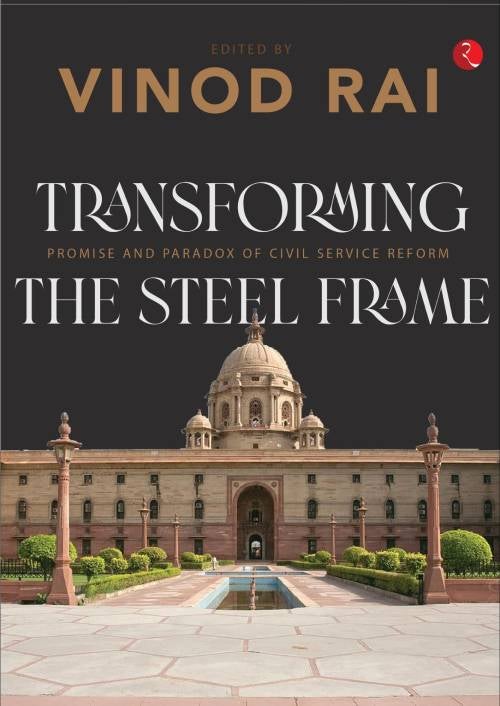
| Title: | Transforming the Steel Frame |
| Author/s: | Vinod Rai |
| Abstract: | The bureaucracy in India has been a study in contradictions. On the one hand, it represents the dream job for an entire population of Indians who take the UPSC examination to join the ‘steel frame’, keeping the country running. On the other hand, it is rife with tales of corruption and red tape, such that citizens dread any interaction with government officials of any order.
Curated by veteran bureaucrat, former Comptroller and Auditor General Vinod Rai, Transforming the Steel Frame: Promise and Paradox of Civil Service Reform examines the roles and responsibilities of the bureaucracy in modern times. It sets forth a vision of the future through an analysis and review of past attempts at reform, in the process revisiting the strengths of the systems as well as the flaws that prevent its optimal functioning. It includes the perspective of former civil servants who have been a part of this system for their entire lives and reflect on its problems while making recommendations for the future; officials who have participated in setting evaluation standards for the civil services and who have headed training academies and businesspersons who have worked both in the private and public domains and collaborated extensively with the bureaucracy. In the breadth and thoroughness of its coverage, Transforming the Steel Frame provides an excellent overview of the civil services as they are and, more importantly, as they should be. The study that forms part of this book has been initiated by the Institute of South Asian Studies, National University of Singapore. |
| Date: | 4 April 2023 |
| More From: |

| Title: | Environment, Climate Change and Migration in South Asia |
| Author/s: | Amit Ranjan, Rajesh Kharat, Pallavi Deka |
| Abstract: | Climate change has been fueling migration, and, according to some policy reports, there could be more than one billion climate migrants/refugees across the world by 2050. In South Asia, disasters, environmental degradation, and climate change are increasing the number of migrants every year. In South Asia, like other parts of the world, migrants and displaced people mainly move within their respective countries, but some cross the porous border. At most places, the migrants and displaced people face hostile situation as they are not welcome by their local host population.
The chapters in the book highlight the challenges and inadequacies of governments and communities in protecting the environment as well as the disproportionate effect that climate change has on the poor and marginalized groups. The book also discusses the gendered experiences of climate-related migrations and policy measures which need to be implemented to counter forced displacements and environment degradation along with the legal and institutional resources which could help mitigate climate change and protect climate refugees. |
| Date: | 31 March 2023 |
| More From: |
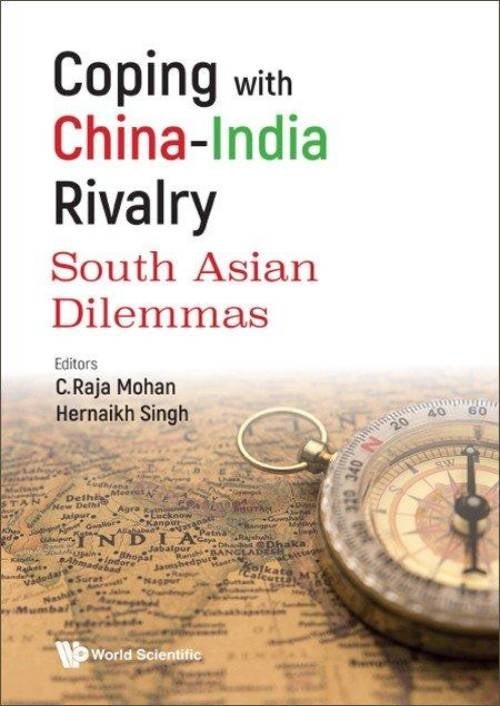
| Title: | Coping with China-India Rivalry: South Asian Dilemmas |
| Author/s: | C Raja Mohan, Hernaikh Singh |
| Abstract: | Although China has been an important external actor in South Asia since the middle of the last century, it is only in the 21st century that China became a decisive influence on the region's evolution. The emergence of China as the world's second-largest economy naturally made it the largest trading partner for most South Asian countries. China's rapid military modernisation, facilitated by its expansive economic growth, had a major impact on the region's security politics. China's political and diplomatic weight is now visible sharply not only in the economic, foreign, and security policies of the South Asian nations but also in their domestic politics.
Meanwhile, India has emerged, albeit at a slower pace than China, as a major power over the last two decades. Like Beijing, New Delhi's geopolitical aspirations too have steadily risen during that period. This has set the stage for growing strategic friction between India and China. The friction has enveloped many regional and global domains, but its greatest expression has been in the shared South Asian neighborhood. India is determined to sustain its traditional primacy in the region and China is determined to consolidate its growing influence in South Asia. The sharpening friction has also begun to intersect with the growing great power tensions, especially between the United States and China. Many elements of these new dynamics have drawn academic engagement, in particular from the major power perspectives. However, the voices of the smaller South Asian nations have not been sufficiently heard or analysed. This volume seeks to address that major gap in the current discourse on the Indian subcontinent and its changing role in great power politics. |
| Date: | 4 January 2023 |
| More From: |
Load more


